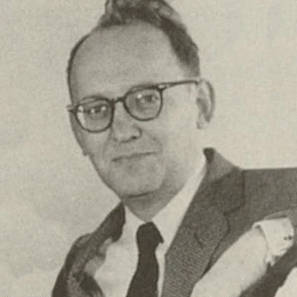
From his NY Times Obituary, June 1, 2011
Philip Rose, ‘Raisin’ and ‘Purlie’ Producer, Dies at 89
Philip Rose, who as the producer of Broadway shows like “A Raisin in the Sun” and “Purlie Victorious” advanced the cause of black playwrights and actors and helped widen the scope of American theater to include stories of blacks and other minorities, died on Tuesday in Englewood, N.J. He was 89.
His death, at the Lillian Booth Actors Home of the Actors Fund, came after a stroke, his wife, Doris Belack Rose, said.
A former singer and a record company executive, Mr. Rose was a producing novice when he and David J. Cogan, an accountant, brought “Raisin” to the stage, first to New Haven in 1958 and then to Broadway in March of the next year. Mr. Rose had known the playwright, Lorraine Hansberry, since they had both worked in a summer camp in the Catskills, he as a singer on the entertainment staff, she in the dining room. She confessed to him that she had literary dreams.
“And he said to her, ‘I hope you do become a writer, because you’re a lousy waitress,’ ” his wife recounted in an interview on Wednesday. “That cemented the friendship.”
Ms. Hansberry showed him early versions of a play that told the story of a black Chicago family’s aspirations to middle-class respectability and the eventual dashing of their dreams. He later offered to produce it.
“And she said, ‘What does that mean?’ ” Mrs. Rose said. “And he said, ‘I haven’t a clue, but we’ll find out together.’ ”
The first play by a black woman to open on Broadway, and the first Broadway play with a black director (Lloyd Richards), “Raisin” had a cast that included the future stars Sidney Poitier and Ruby Dee. It received terrific reviews, ran for well over a year, spurred interest in black theater and, as The New York Times drama critic Frank Rich wrote on its 25th anniversary, “changed American theater forever.”
Mr. Poitier, who also starred in a 1961 film version of the play, said in an interview on Wednesday that Mr. Rose was a fine judge of acting talent.“
He would give actors a page or two to read,” Mr. Poitier said, “and in watching that actor, he could see what rested behind the words, which gave him a good measurement of the power that actor had.”
n 1961 Mr. Rose produced “Purlie Victorious,” a farcical sendup of race relations set in a Southern town, written by Ms. Dee’s husband, Ossie Davis. Directed by Howard Da Silva and starring Mr. Davis, Ms. Dee, Alan Alda and Godfrey Cambridge, the play ran more than seven months and inspired a musical, “Purlie,” which itself became a hit in 1970. Mr. Rose again produced, and he collaborated on the book with Mr. Davis and Peter Udell.
“I’m so grateful he was on the scene,” Ms. Dee said on Wednesday. “He was responsible for a major shift in the theater, for the inclusion of so many African-Americans on Broadway.”
Mr. Rose was also a pioneer in untraditional casting. In 1964 he produced Bill Manhoff’s two-handed comedy, “The Owl and the Pussycat,” a romance about a pseudo-intellectual who works in a bookstore and a model/actress who is also a prostitute. Mr. Rose hired a white actor, Mr. Alda, and a black actress, Diana Sands, who had appeared in “Raisin.” Controversy ensued.
“I asked myself, ‘Is Diana’s color going to keep her from getting the role?’ ” Mr. Rose said in an interview with The Times. “ ‘No,’ I said to myself, and I managed to persuade the playwright and others to make the break. I happen to think that Sidney Poitier would make a great Hamlet. Should he be denied the part because the others in the company might be white?”
Philip Rosenberg — he changed his name when he entered show business — was born on July 4, 1921 on the Lower East Side of Manhattan. When he was a teenager his father, Max, moved to Washington and opened a haberdashery. Philip abandoned his studies at Brooklyn College to rejoin his family. After briefly pursuing a singing career — he was a baritone — he worked as a record executive and founded a label, Glory Records, which released pop and R&B music in the 1950s.
| Credit Type | Production | Season |
|---|---|---|
| Director | Whose Family Values | 2002-03 Season |

